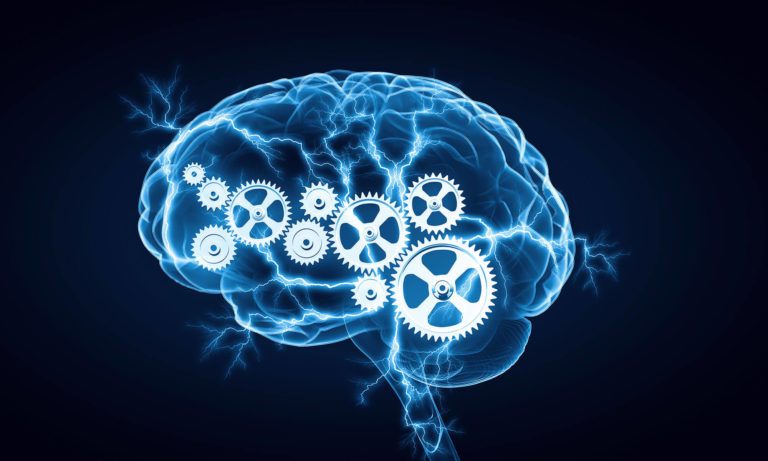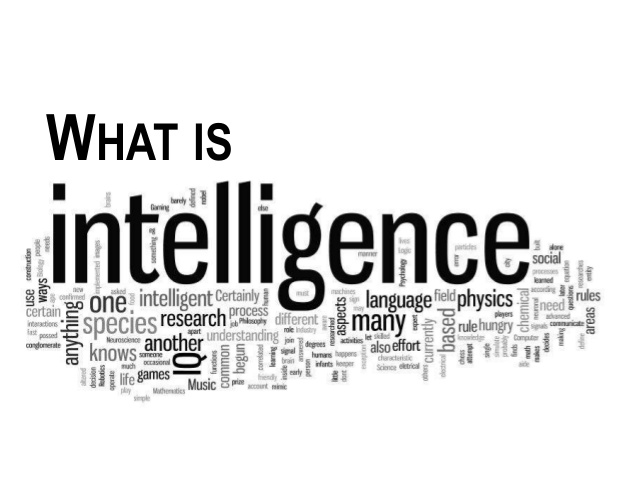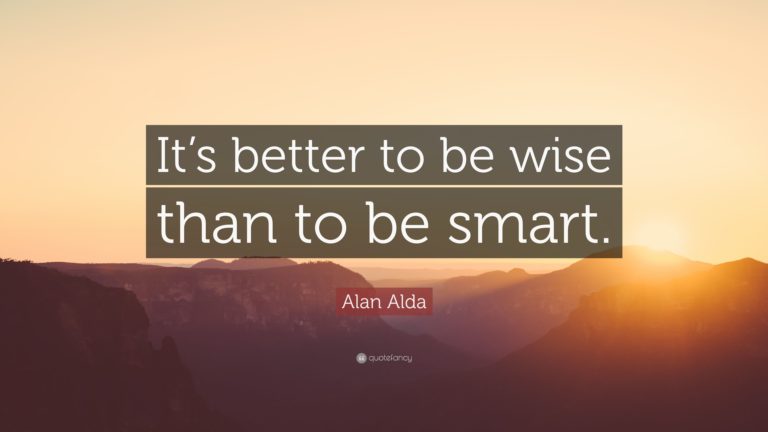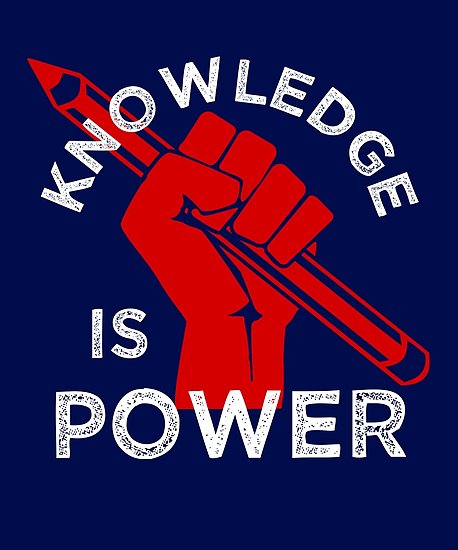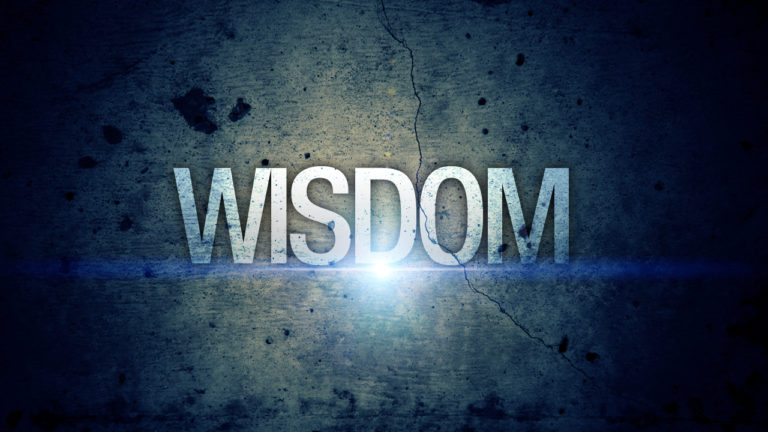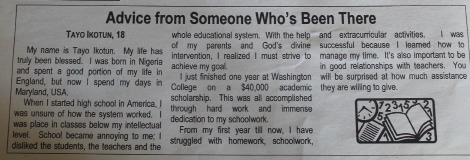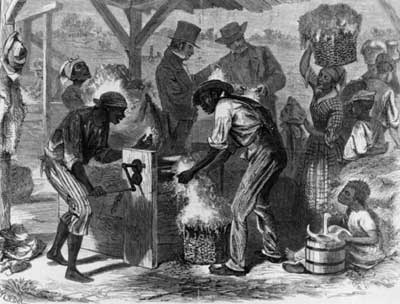“I’m not able, sir.” “I cannot do it, it’s too difficult and I’m not so smart as my friend, sir.” “I am too stupid.” From 8:15 am to 2:15 pm, Monday to Friday, September to June, these are the sentences I hear my classmates continually uttering. It annoys me, because, one, I must hear these completely erroneous sentences all day and two, as we all know, no one is stupid. As I heard my classmates say these words, I realized that they only speak this way when they do not understand something or have a bad grade in their test or that their friend has done better than them. Sincerely I think that no matter how my classmates or anyone else would try to justify the above words or similar words, they are by no means valid. As I said at the beginning, everyone is smart. I add that each person is intelligent, but not the same way. There are what we call, multiple intelligences and everyone has at least one. Here are some examples of multiple intelligences.
• Logico-mathematical intelligence.
• Verbo-Linguistic intelligence.
• Space intelligence.
• Musical / Rhythmic intelligence.
Me, I am verbo-linguistic and Music-Rhythmic. What is your type of intelligence? Every human being has one and everyone must use this intelligence for the good of all. If you are a person with a musical / rhythmic intelligence, and are grown enough, start a small musical group. Your band and you could write music and if everything is fine for you, you could become a very famous band. This will contribute to the growth of Canadian musical diversity. There are many beautiful things that you could achieve with your intelligence, all you need is a little imagination and there you go. Do not use your intelligence to belittle or destroy someone, use it to give faith and hope to those who do not have, and to diversify your surroundings. Thank you, dear readers, for taking the time to read my article and I hope you now know that everyone has one or more intelligences and that everyone must use them very wisely.
The Differerent Types of Intelligence
What is Intelligence?
What is intelligence ? In my opinion an intelligent person is much more experienced. Someone who likes to learn and understand how things work. Do not get me wrong. I’m not saying that if you do not have the above qualities you are not considered a person with intelligence, I’m just saying that someone with intelligence is a very open person. She is also a person who does her homework, who is punctual, who helps others and who is very kind to others. By the way, everyone is smart in their own way. So, if you do not feel smart for one reason or another, remember that you are smart but not the same as others. I hope that my article will give you confidence in your intelligence. Before I leave, I would like
Better to be Wise than Smart
Good morning/afternoon ladies, gentlemen and children. Today we’re going to be talking about intelligence. Intelligence is about using your head/brain or being smart. Being intelligent is defined as “the ability to learn or understand or to deal with new or trying situations” according to Merriam-Webster. “There is no great genius without some touch of madness.” ~ Aristotle
When I said using your head and being smart I didn’t mean in your classroom. I mean everywhere you go. For example, your friend is trying to talk you into doing drugs/ trying them. You have to be intelligent about it. Do drugs and be like the cool kids and then regret it for the rest of your life or find a way to get out and then praise the Lord you made such an intelligent decision. “Common sense is not so common.” ~ Voltaire
Intelligence is also a form of showing that you are smart. Being smart will help you along the way. In high school and college/university. Being smart in life could help you get a job and feed you and your family. Being intelligent is an important part of a growing child’s life. When they are in school they are taught how to be intelligent about situations that could be dangerous and harmful. “Intelligence is the wife, imagination is the mistress, memory is the servant.” These things will help you along the way. Being intelligent is not totally about being smart it is also about using your head when you are in a dangerous situation. Some more quotes that talk about intelligence are : “Be as smart as you can, but remember that it is always better to be wise than to be smart.” ~ Alan Alda “ Our government is founded upon the intelligence of the people. I for one do not despair of the republic. I have great confidence in the virtue of the great majority of the people, and I cannot fear the result.” ~ Andrew Jackson. These are some
quotes that stood out to me that represent intelligence. Thank you for reading this article.
Knowledge is Power
If knowledge is power, and ignorance is supposed to be bliss, it’s clear why Law enforcement agencies across the United States have failed to provide even basic information on Police misconduct, which include police shootings, frisking and sexual assault.
Activist and data scientist, Samuel Sinyangwe, gave a riveting presentation on “Using Data for Racial Justice” as the keynote speaker for YouthREX’s Community Exchange, Connecting Data to Action for Youth in Windsor-Essex. Currently based out of New York, Sinyangwe is co-founder of We the Protestors, a group aimed at ending systematic racism and police violence and Mapping Police Violence, a data driven effort that collects and uses data to fight police violence. His presentation delivered alarming information on the lack of police data in the United States and how black people are 3x more likely to be killed by police.
The data collected in the Mapping Police Violence (MPV), allows users to be validated with facts when discussing statistics on police violence. On the MPV website there is an interactive policy solutions chart that allows you to click on a city and see their policies. This gives power to the people in the form of knowledge. People who are not political science majors or politicians can use this knowledge and become policy advocates. Sinyangwe recalled an encounter with United States Senator, Bernie Sanders when a member of the audience asked how he was able to deliver such an impactful exchange without getting emotional. Sanders came to the meeting ready for a fight, but Sinyangwe came prepared with data and facts, that allowed him to diffuse the tension and get to the point where change can happen.
Dr. Uzo Anucha, Provincial Academic Director of YouthREX, presented, “A Data Portrait of Windsor-Essex Youth”. Her presentation hit closer to home as the statistics show that youth who identify as being from a racialized group disproportionately face challenges finding employment in our community. Frazier Fathers, Director of Continuous Improvement and Advocacy for the United Way, gave an inside look into their new program, Prosper Us. The cradle to career initiative is for youth growing up in low economic households and neighbourhoods and provides researchers with the ability to measure and track participants progress.
The event concluded with group discussions that allowed each table to discuss the potential and challenges that all of this data provides. Currently there are over 104 million Americans who support the Black Live Matter movement but, like Sinyangwe stressed, we need more than 10-15 trained individuals helping the movement, we need the masses working together to make a change.
Intelligence and the Law
“Opolo pipe” loosely translates to intelligence in English. A more complete definition however would encompass the idea of being intellectually sound. This is the 9th and final Omoluabi principle. Just like many of the other Omoluabi virtues, intelligence is one that is universally valued.
An Omoluabi will display this trait in all areas-personally, professionally, and in their education. One can even argue that this is the foundation to all the other virtues that have been discussed. Intelligence will make an individual excel in all other areas. It is often foundational to good choices and good behaviour.
The legal profession, particularly as it relates to trial advocacy is one that has long been known for its intellectual rigour. It is a profession where success will necessarily require intellectually soundness. This is displayed in every step of the process of trial advocacy from the very moment when a client enters the door until the case is complete. The confrontational and adversarial nature of the profession is such that it rewards those who use their intelligence to be one step ahead.
Trial practice is an area where strategy is equally if not more important than practical hands-on skills. It is an domain where parties involved must be able to read their opponents and understand the opposing side just as well, if not better than their own side. The courtroom environment rewards those who are prepared and deals harshly with those who are not. It requires quick thinking and the ability to digest and respond to unexpected information as soon as it is heard.
There are few areas and professions in which intellectual soundness is as demanded as that of law. Any Omoluabi stands to excel in such a situation due to law being a great marriage of all the skills that make up the Omoluabi philosophy.
The High Value Of Wisdom
The dictionary defines ‘wisdom’ as the ability to judge or discern what is true, right or lasting. Wisdom is also defined as the quality of having experience, knowledge and good judgment, the quality of being wise. It is the soundness of an action or decision with regard to the application of experience, knowledge and good judgment.
Wisdom is the ability to think and act using knowledge, experience, understanding, common sense and insight. It has been defined in many ways.
In the Bible, wisdom is not primarily an intellectual matter. It is basically a moral matter. The ‘wise’ person is not on who know the most about science and about literature, but the person who knows how to order his life in obedience to God’s will. Moses told the people of Israel the following when they were about to enter the Promised Land -in regards to God’s commandments he had taught them-he said, “Therefore be careful to observe them for this is your wisdom and your understanding” (Deuteronomy 4:6)
Wisdom isn’t simply intelligence or knowledge or even understanding. It is the ability to use these to think and act in such a way that common sense prevails and choices are beneficial and productive. You don’t get wisdom out of a text book. You don’t get knowledge to make you wise. Experience might be one of the most valuable tools in acquiring wisdom. That is to say, what we learn from experience gives us the wisdom whether to try a particular thing or make a certain choice or not.
Wisdom begins and ends with the fear of God. Where there is no fear of the Lord, there can never be any true wisdom. It is just not possible.
Wisdom is the ability to follow a sound course of action based on knowledge and long experience. Wisdom is used in the Proverbs, begins with reverence and awe for God, and leads to living life in accordance with God’s plan.
Wisdom is better than strength. Without wisdom strength simply leads you into trouble. Knowledge can be acquired in a school, but not wisdom. Wisdom gives you the ability to know what to do and how to do it. It is a gift from God.
Wisdom is the most valuable thing worth pursuing on the face of the earth. In reality God is wisdom as well as a source of wisdom so by seeking wisdom, you are actually seeking God. Proverbs 3:14 says: “Blessed is the one who finds wisdom and the one who gets understanding for the gain from her is better than gain from silver and her profit better than gold.” I don’t think anyone reading this would turn down a bag full of silver or gold. But if I had a bag full of silver and a bag full of wisdom, which would you choose? Get wisdom. Wisdom not only enriches, it protects, “Do not forsake wisdom and she will keep you, love her, and she will guard you” (Proverbs 4:6).
Wisdom will bring marvelous realities into your life. If you don’t get wisdom, then your life will be dull, drab, and dreary. If you get wisdom, your life will be full of the opposite. As Omoluabi, we desire our members and readers to have God’s wisdom and discretion in their hearts.
Seniors’ Festival Event
Africans are known for their deep respect and reverence for their elders. One of the first lessons you learn as a child is to respect your elders which to the dismay of many children, applies to your older siblings as well.
November 3rd, 2018 launched the start of the first ever Seniors’ Festival. Held at the Caribbean Centre in Windsor’s east end, over 30 people gathers together to celebrate the seniors in our community, including members of NCEEP’s community event, “Tea time with African Seniors.”
Tea time with African Seniors gave members of our community that are 50 plus, an opportunity to learn about: health, fitness, retirement, computer skills, join a senior’s dance club, and meet new people. Mama Alabi, who was at every Tea time event, won an award for perfect attendance. She received a gift bag and photo album full of pictures of herself at all the events she attended, a lovely keepsake to commemorate her time well spent.
Members of the audience were given a chance to stand up and show their appreciation for the seniors in their life and talk a little bit about their impact. A Cameroonian dance group performed a traditional dance and a fashion show that displayed traditional African clothing modeled by both men and women and members of the senior community.
It is not merely the fact that they have reached a certain age that we respect our elders, but what that they have learned and experienced in this time. There is always something to be learned from those ahead of us. When our community takes the time to celebrate the sacrifices of our elders and acknowledge all the wisdom they have to offer, it is a gift rather than an obligation and a practise that all cultures should adopt.
Hard Work
In 1745, The Ancestor was born in shackles
Tied to tree’s, not yet a farm mule but not yet free
He was raised as livestock
Pushing a solid century Mommy was a house slave Daddy picked the field clean
One snap Two snap Three snap Four
By 1760 He wasn’t a child no more
January February March April May
He picked cotton with the flock Dodging whips and chains
By 1775 The Ancestor set his mind free
He’d no longer slave in the field
He had no choice but to leave
A life lived in fear is a life not lived
He would rather send his soul to the Lord than let my fear win
Now Afro’s on the run pushing weeds past the bank
Singing tunes, making moves to where the Northern Star sinks
I’m a man, I’m Woman I’m a person not a slave
I have the Lord on my side and the Lord will make a way
The sky is dark, my journey’s long
I to take it day by day
Like the rhythm to a song I have no time to give away
So I sway
And I sway, and I sway, and I sway
As I “wade in the water, wade in the water children wade in the water, God’s gonna trouble the water”
